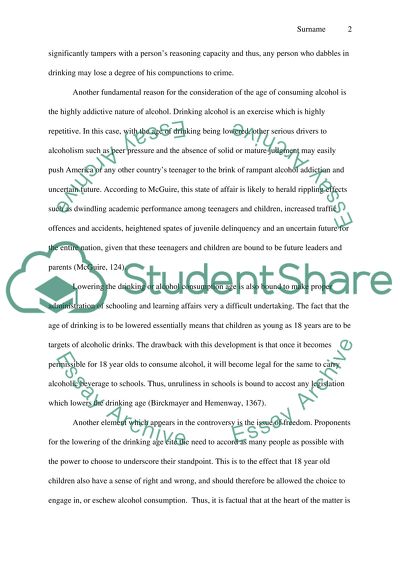Cite this document
(“Change/lowering Drinking age Essay Example | Topics and Well Written Essays - 1750 words”, n.d.)
Change/lowering Drinking age Essay Example | Topics and Well Written Essays - 1750 words. Retrieved from https://studentshare.org/english/1494732-change-lowering-drinking-age
Change/lowering Drinking age Essay Example | Topics and Well Written Essays - 1750 words. Retrieved from https://studentshare.org/english/1494732-change-lowering-drinking-age
(Change/Lowering Drinking Age Essay Example | Topics and Well Written Essays - 1750 Words)
Change/Lowering Drinking Age Essay Example | Topics and Well Written Essays - 1750 Words. https://studentshare.org/english/1494732-change-lowering-drinking-age.
Change/Lowering Drinking Age Essay Example | Topics and Well Written Essays - 1750 Words. https://studentshare.org/english/1494732-change-lowering-drinking-age.
“Change/Lowering Drinking Age Essay Example | Topics and Well Written Essays - 1750 Words”, n.d. https://studentshare.org/english/1494732-change-lowering-drinking-age.


